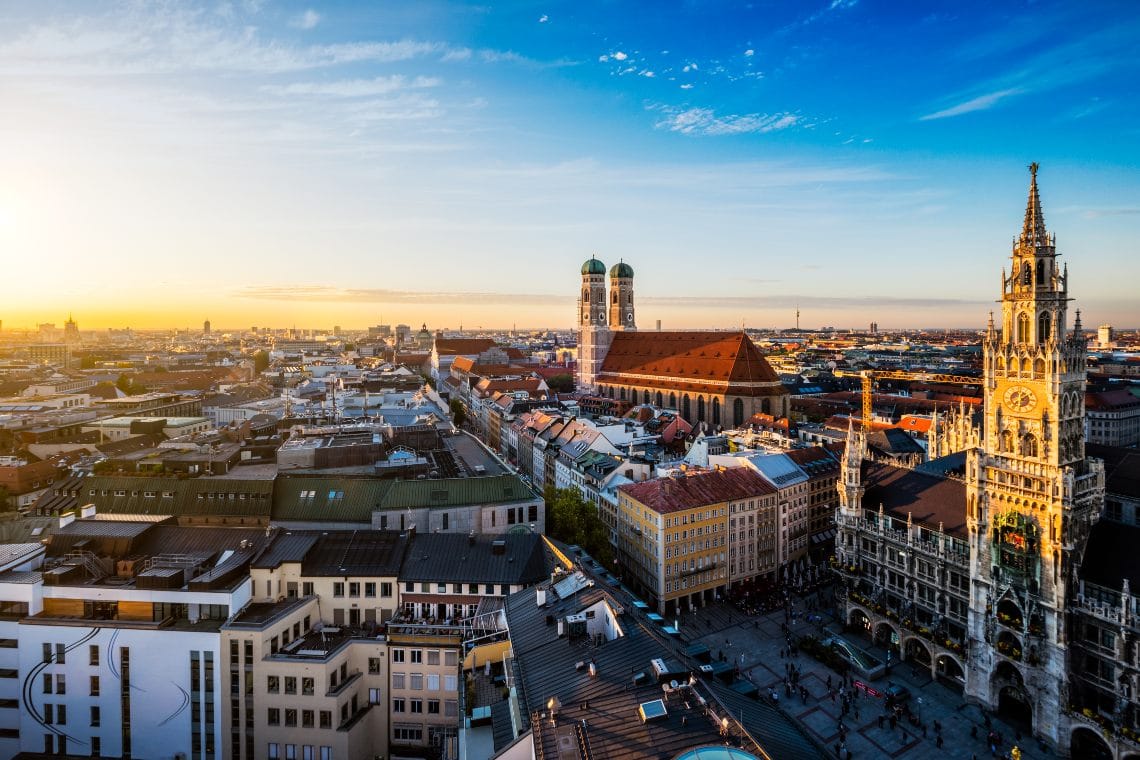Fetch.ai and Datarella have begun a project aimed at transforming the city of Munich, Germany, into a Smart City.
Fetch.ai is an artificial intelligence laboratory based in Cambridge that is building a decentralized blockchain-based network for automatic learning of intelligent infrastructures, while Datarella is a company providing industrial blockchain solutions.
Today the two companies announced the launch of an experiment involving Munich’s zoning infrastructure.
The trial will be launched in Connex Buildings and will use multi-agent, blockchain-based artificial intelligence digitization services to unlock data and provide intelligent mobility solutions in its downtown real estate properties.
When implemented, Fetch.ai AEA (Autonomous Economic Agents) will support the sustainable and efficient use of city infrastructure through an application where parking lot prices will be automatically negotiated between their owners and those who are looking for one.
Users will also be able to earn digital currency rewards if they choose less frequented or requested parking spaces, or if they do not use the parking space at all on certain days.
This gives users an incentive to reduce individual traffic to Connex offices through a system of rewards measured by parking usage: each regular user of a parking space will be rewarded with a certain amount of token for every minute they do not use it.
The aim is to optimise the use of resources and above all to reduce the city’s carbon footprint, as Fetch.ai and Datarella predict that the mass implementation of the Smart City’s infrastructure could lead to a reduction in CO2 emissions of 34,000 tonnes per year.
The CEO of Fetch.ai, Humayun Sheikh, said:
“Fetch.ai provides a decentralized framework for building and customizing autonomous AI agents to carry out complex coordination tasks. Our vision is to connect digital and real-life economies in order to enable automation over a decentralized network and change the way we use data.
Assuming there is a 10% reduction in car usage across Munich alone, the city would see a 34,000 tonne annual Co2 emission reduction. Scaled up to cover all of Germany, that equates to 1.7 million tonne Co2 reduction, annually. This smart city solution has the potential to penetrate huge markets simply by tapping into wasted data and utilizing it efficiently”.
Datarella CEO Michael Reuter added:
“Landlords, as well as the City Council, are interested in optimizing the parking space management, to allow for available parking for all employees of corporate tenants while organizing the traffic flow and preventing commuter traffic jams. Our system incentivizes community use of public transport through a token distribution system while reducing the congestion that accounts for a great deal of Munich’s CO2 emissions”.




